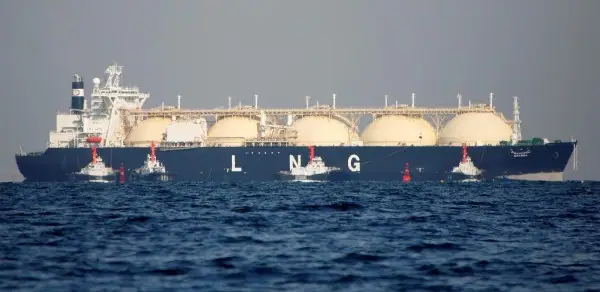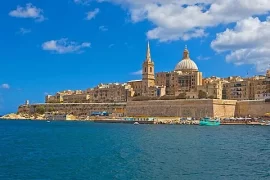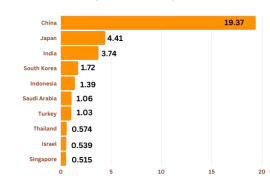Bangladesh state-run oil and gas company Petrobangla has recently defaulted payments to its long-term suppliers of LNG, Qatargas and OTI (Oman Trading International).
Although OTI has dropped its penalty claim on the request of Petrobangla, Bangladesh has to pay penalty to Qatargas amidst the ongoing dollar crisis in the country.
The amount of demurrage for Petrobangla defaulting on LNG payments has not yet been disclosed. However, the LNG import payment would be around US$140-160 million per month at current market price, reported the Financial Express referring to market insiders.
A senior Petrobangla officials has shared to the financial daily that Bangladesh as a regular importer had requested both the suppliers to rescind the demurrage claim on the excuse that they country had never defaulted payments before since starting imports in April 2018.
But, what are the reasons for Petrobangla failing to pay the suppliers?
The immediate cause is the scarcity of dollar in both local and foreign banks active in Bangladesh that has led to their reluctance to open letter of credit (LC) against imports.
Bangladesh Bank’s faulty method of fixing exchange rate is a major reason behind the dollar crisis. It kept Taka’s value artificially high for years which failed to reduce the burden of import payments and hurt the export and remittance earning instead.
Mismanagement of foreign currency has also created big balance sheet problem for local banks. The offshore units of the local banks gave out loans to local companies in foreign currencies and take repayment in local currency flouting the offshore banking conditions set by the central bank.
It is worth noting that, in 2019, Bangladesh Bank permitted local banks to open “offshore banking units” which let them to provide foreign currency loans to foreign companies operating in EPZs and high-tech parks in the country, a privilege previously exclusive to foreign banks.
These long-term structural problems turned into full-blown dollar crisis amid high import payments caused by global supply-chain disruptions following the Russia-Ukraine war, corruption through under- and over-voicing and low remittances and export earnings.
Another reason is the lack of foresightedness of the energy authority in Bangladesh.
A few years ago, OTI offered to double LNG supply to Petrobangla to 2.0 million tonnes per year from 1.0 million tonnes under the same terms. If Petrobangla accepted the offer, they could have purchased LNG at cheaper rates compared to the volatile international spot market, and the government could avoid raising natural gas tariffs.
Energy expert Professor Ijaz Hossain said to the Financial Express that not signing the SPA with OTI for increasing long-term imports of LNG was a mistake and the government should have kept an option of importing 75% from long-term suppliers and 25% from the spot market.
Bangladesh has signed sales and purchase agreements (SPAs) with long-term suppliers such as Qatargas and OTI.
The agreement with Qatargas requires Petrobangla to make payment within 15 days of imports while the payment period for OTI is within 25 days of import.
Demurrage claim remains effective at London Interbank Offered Rate (LIBOR) plus 4.0% above the overall import costs, if Petrobangla defaults on regular LNG payments to the suppliers.
Petrobangla inked the first-ever SPA with Qatar’s RasGas, later renamed Qatargas, on September 25, 2017 to buy around 2.5 million tonnes per year (Mtpa) of lean LNG over 15 years.
During the initial five years of the deal, Qatargas will supply around 1.8 Mtpa of LNG, which will be increased to 2.5 Mtpa in next 10 years. The purchase price has been set at around 12.65% of the three-month average price of Brent crude oil plus $0.50 constant per million British thermal unit (MMBtu).
Petrobangla can increase the LNG-import volume to 2.5 Mtpa annually during the first five years and has the option to reduce the amount by 10% every year during the next 10 years.








